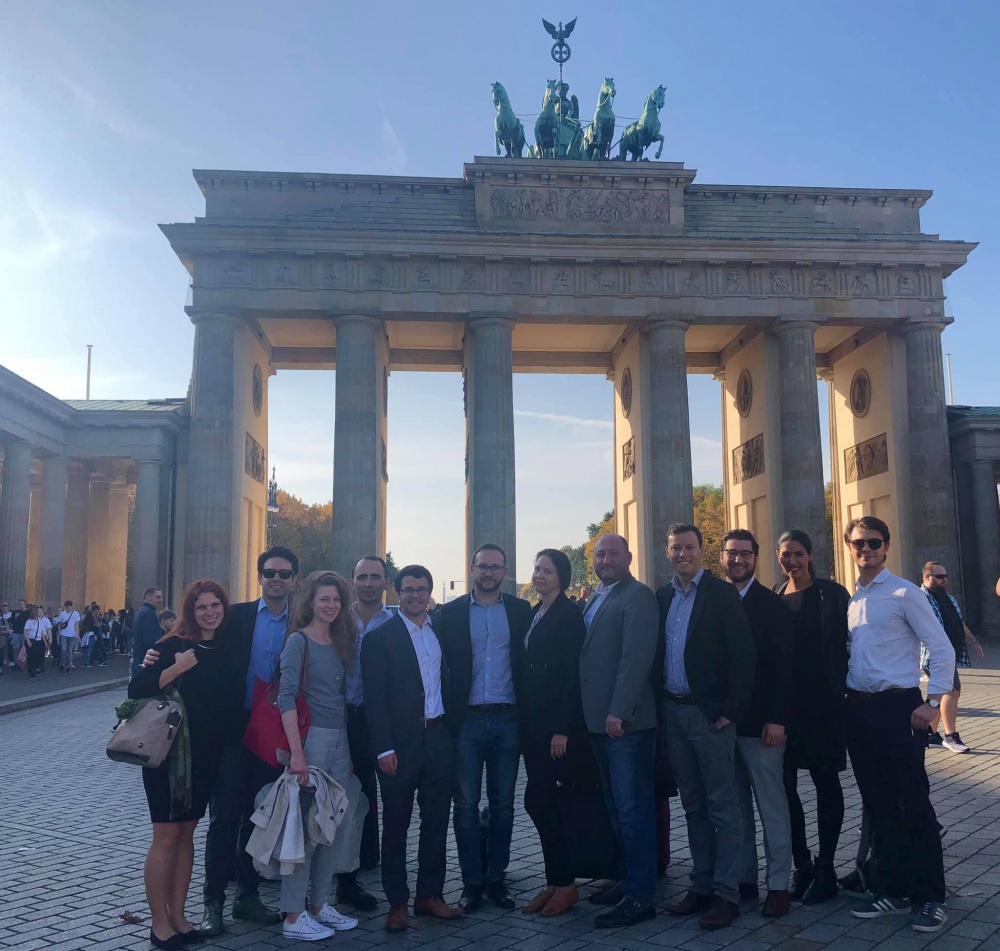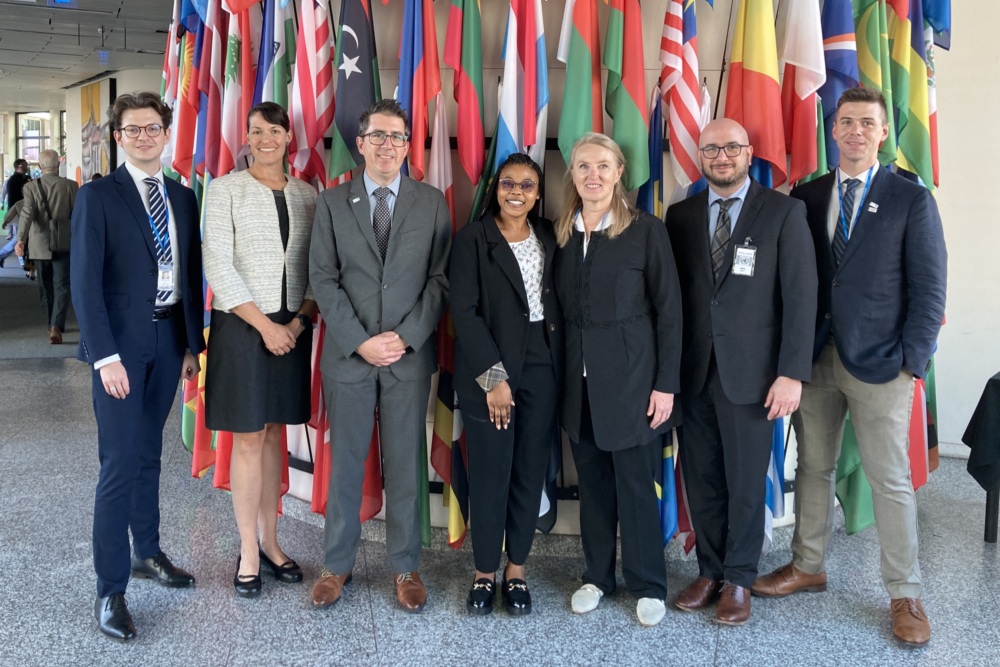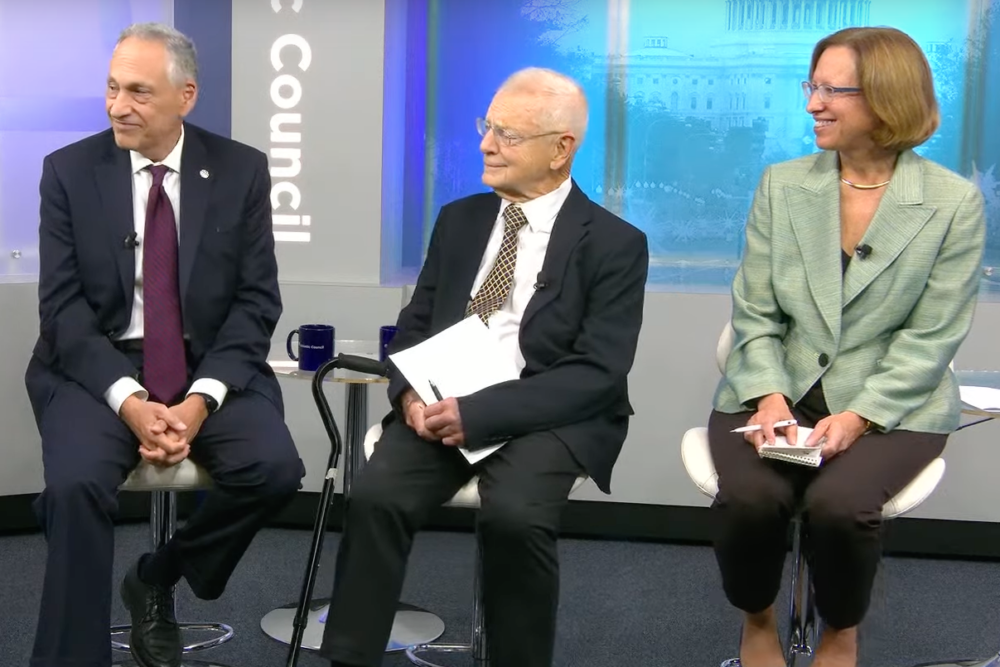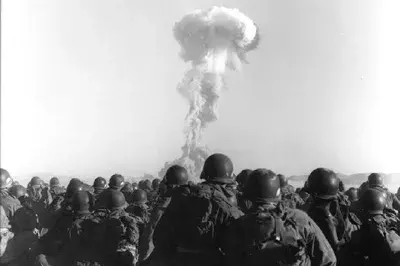
Atomic Pulse
YGLN Tackles Security Threats Posed by Right-Wing Populism, Climate Change, and Emerging Technologies

Major disruptions facing the Euro-Atlantic region, including
threats posed by right-wing populism, climate change, and technological
upheaval, topped the agenda this month at the tenth meeting of the Younger
Generation Leaders Network (YGLN) on Euro-Atlantic Security, a capacity
building network designed to foster a new generation of leaders to
tackle global challenges.
Organized by the European
Leadership Network and hosted by the Friedrich Ebert
Stiftung in Berlin, the YGLN’s latest meeting included discussions about
how the network can play a role in reversing dangerous populist trends and expert
presentations on novel approaches to address climate change and technological
disruption.
Now in its fifth year, the YGLN promotes dialogue and debate
among emerging leaders from across the Euro-Atlantic, including from the United
States, the United Kingdom, Canada, Russia, Ukraine, Germany, Lithuania,
Latvia, and other European countries. It has four working groups, each focused
on a different dimension of Euro-Atlantic security: rule of law, civil society,
economics, and (hard) security. Its members now include advisors to heads of
state, diplomats, lawmakers, journalists, activists, academics, and civil
servants. I have been a member since 2016 and serve as co-chair of its Rule of Law
working group.
Among the most significant concerns discussed in Berlin was
the threat of right-wing populism, a trend now evident across all corners of
the Euro-Atlantic. Our meeting took place just a few days after a self-declared
nationalist attacked a synagogue in nearby Halle, renewing questions across
Germany and Europe about the prevalence of anti-Semitism and xenophobia, the
resilience of liberalism and liberal values, and the responsibilities (and
limits) of governments to address right-wing populism. We discussed the roots and characteristics of
right-wing populism and how civil society, including our network, can play an
active role in pushing back against this dangerous trend.
We also had several sessions dedicated to understanding
societal disruptions caused by emerging technologies, such as artificial
intelligence and lethal autonomous weapons systems, and heard from experts who
are working on developing international approaches to mitigate the risks associated
with these advancements. We concluded the second day of our meeting with expert
presentations on various approaches taken by Germany and other European
countries to tackle the climate crisis, such as carbon pricing and innovations
in public transport.
After the final plenary session, many of us took a stroll through
Berlin’s beautiful Tiergarten to head over to the Brandenburg Gate. Standing next
to the gate, we were reminded that extraordinary and inspiring events
transpired there some 30 years ago as segments of the Berlin Wall came crashing
down in November 1989. At the same time, we wondered whether less visible
barriers have been erected since then between Russia and the West, and how we,
as the next generation of leaders in the Euro-Atlantic, can tear them down.
Launched in 2014 by the Nuclear Threat Initiative
and partner organizations in the United States, Europe and Russia, the YGLN today
is part of the European Leadership Network, an independent non-government
organization based in London.
Stay Informed
Sign up for our newsletter to get the latest on nuclear and biological threats.
More on Atomic Pulse

A Conversation with Lynette Moyo, Inaugural Recipient of the GCNP: Next in Nuclear Fellowship

NTI’s Lynn Rusten on the Costly and Potentially Destabilizing Recommendations in the 2023 Strategic Posture Commission Report
Lynn Rusten, vice president of NTI’s Global Nuclear Policy Program, shares her reaction to the 2023 Strategic Posture Report during a panel event at the Atlantic Council.

Mushroom Clouds That Never Vanished: The Fight to Secure Compensation for Nuclear Test Victims
There is no noise at first, only a flash so bright that the soldiers see their own bones and blood vessels through their skin, as if they have x-ray vision.
